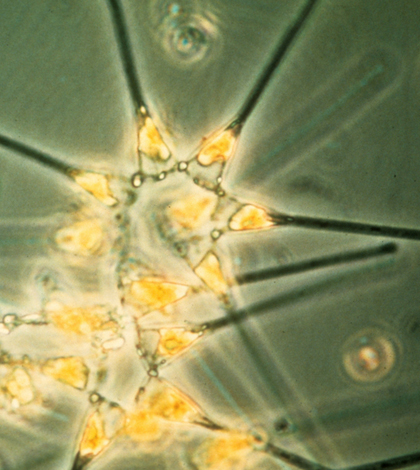Longer Data Collection Could Better Dissect Ocean Biology Changes

Phytoplankton, or sea sawdust, play an an important role in the marine phosphorus cycle. (Credit: NOAA MESA Project)
Phytoplankton, very small marine plants that both aid the ocean in taking up atmospheric carbon dioxide and provide the base for the marine food web, are naturally quite variable in their biology.
According to a release from the National Oceanography Centre, the natural variability of phytoplankton may be so great that their biological trends due to global warming may not be possible to accurately detect over typical research periods. Most data sets use 20 years or fewer of phytoplankton data, whereas scientists at the Centre suggest real trends may not be detectable until 30 to 40 years of data are collected.
Information from publicly available models was used to determine whether trends due to climate change could be detected in phytoplankton biological data. Data was taken at a variety of sampling areas around the globe. Researchers found that the current number and location of sampling areas might suffice for detecting phytoplankton biological variability, but only with a sampling time 50 to 100 percent longer than the longest current phytoplankton biological data collection effort, of 20 years.
Top image: Phytoplankton, or sea sawdust, play an an important role in the marine phosphorus cycle. (Credit: NOAA MESA Project)




0 comments